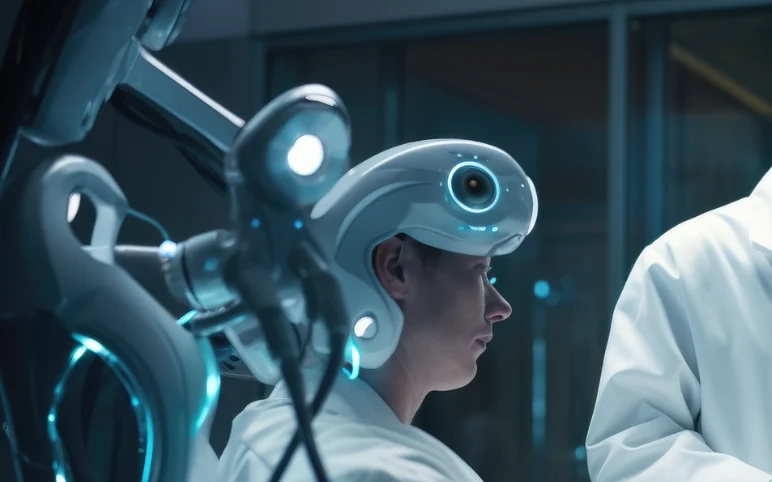OncoHost Received New York State Laboratory Permit, Expanding Availability of PROphetNSCLC® Precision Oncology Test
On October 22, 2025, OncoHost, a technology company transforming the approach to precision medicine through plasma proteomics and AI, announced that it had received a laboratory permit from the New York State Department of Health Wadsworth Center. This permit enabled the company to offer its PROphetNSCLC® test to physicians and patients across New York State, marking a key milestone in OncoHost’s U.S. expansion.
The New York State Department of Health’s permit reflected the rigorous standards required for clinical laboratory operations and further validated OncoHost’s commitment to quality, accuracy, and compliance.
PROphet®, OncoHost’s AI-powered proteomic profiling platform, was designed to guide first-line treatment decisions in oncology. Its proprietary test, PROphetNSCLC®, had been commercially available since 2023 and supported oncologists treating patients with metastatic non-small cell lung cancer (mNSCLC). Using a single blood sample, the test analyzed thousands of plasma proteins to generate a personalized probability of clinical benefit from PD-1/PD-L1 inhibitors, empowering physicians to optimize treatment selection and improve patient outcomes.
“This permit is a significant step forward in making precision oncology accessible to more patients,” said Ofer Sharon, MD, CEO of OncoHost. “New York State maintains some of the most stringent laboratory certification requirements in the U.S., and meeting these standards underscores our scientific rigor, operational excellence, and dedication to clinical impact.”
The New York permit joins OncoHost’s existing certifications under the Clinical Laboratory Improvement Amendments (CLIA) and its accreditation by the College of American Pathologists (CAP), further strengthening the company’s U.S. testing capabilities and expanding its clinical reach.
“Receiving this permit allows us to serve one of the nation’s largest and most diverse patient populations,” added Amir Gelman, PhD, Director of Laboratory Operations & Assay Development at OncoHost. “We’re proud to deliver reliable, high-quality testing that supports oncologists in making data-driven decisions for their patients.”
As per DelveInsight’s “Artificial Intelligence (AI) in Precision Medicine Market Report,” the AI in precision medicine market was valued at USD 1,036.91 million in 2024, growing at a CAGR of 33.18% during the forecast period from 2025 to 2032 to reach USD 10,244.52 million by 2032. The artificial intelligence in the precision medicine market is witnessing substantial growth, driven by the rising global prevalence of chronic and genetic diseases, which have amplified the demand for personalized treatment solutions. This momentum is further propelled by the increasing need for precision diagnostics and tailored therapeutics that leverage AI’s capability to analyze complex biological data. Technological advancements in AI-powered platforms, combined with innovative product development, are enhancing the accuracy and speed of precision interventions. Additionally, a surge in research and development activities, alongside strategic product launches by key AI companies in precision medicine, is accelerating market expansion. These converging factors are expected to significantly fuel the growth of AI in the Precision Medicine market during the forecast period from 2025 to 2032.
Onkos Surgical® Received FDA 510(k) Clearance for ELEOS™ Proximal Tibia with NanoCept® Antibacterial Technology
On October 21, 2025, Onkos Surgical, a leading provider of innovative solutions for complex orthopedic procedures, announced that it had received 510(k) clearance from the U.S. Food and Drug Administration (FDA) for its ELEOS Proximal Tibia with NanoCept Antibacterial Technology. This marked the first 510(k) clearance for the NanoCept Antibacterial Technology since the original De Novo authorization had been granted in April 2024.
The NanoCept technology offered a proactive approach against intraoperative bacterial contamination, representing a significant advancement in the field of orthopedic implants. In preclinical studies supporting the original De Novo market authorization, NanoCept demonstrated up to a 99.999% (5-log reduction) kill rate of bacteria commonly found in the operating room environment. The orthopedic market had shown steadily increasing case demand for the NanoCept technology since the first case was performed in December 2024.
“The NanoCept Antibacterial Technology is an important addition to comprehensive bacterial contamination mitigation efforts in orthopaedic surgery,” said Steven Gitelis, MD, Director of Musculoskeletal Oncology at Rush University Medical Center and Chief Medical Officer of Onkos Surgical. “The clearance of the ELEOS Proximal Tibia with NanoCept Antibacterial Technology allows us to extend this technology to one of the most challenging anatomical sites for bone tumors and complex bone loss.”
“This first post-De Novo 510(k) clearance marks a major milestone, highlighting our commitment and capability to advance NanoCept technology throughout the ELEOS implant system and ultimately beyond,” said Patrick Treacy, CEO and Co-founder of Onkos. “We remain dedicated to supporting the surgeons we serve and the patients they treat by delivering truly innovative and differentiated technologies.”
As per DelveInsight’s “Orthopedic Implants Market Report,” the global orthopedic implants market is estimated to grow at a CAGR of 5.46% during the forecast period from 2024 to 2030. The orthopedic implants market is slated to witness prosperity owing to factors such as the increasing prevalence of orthopedic diseases such as arthritis, osteoporosis, and others, a growing burden of the geriatric population, the rising number of road accidents associated and other injuries, and the ever increasing focus on improving the safety, affordability, and usability of orthopedic implants for people are further expected to result in the appreciable revenue growth in the orthopedic implants market during the forecast period from 2024 to 2030.
BD Simplified at-Home HPV Testing to Broaden Access to Cervical Cancer Screening Outside the United States
On October 22, 2025, BD (Becton, Dickinson and Company), a leading global medical technology company, announced a new self-collection solution for HPV testing in markets outside the United States. This innovation simplified at-home sample collection for patients and further automated laboratory processing using high-tech robotics with the BD COR™ System.
The new swab technology was certified under the In Vitro Diagnostic Medical Device Regulation (IVDR) in Europe, which was also recognized by many other countries worldwide. The self-collection technology provided a safe, simple, and non-invasive sample collection experience for patients, eliminating the need for liquids or complex devices. Its stability allowed convenient mailing from home to the lab, helping to remove logistical barriers and support broader participation in cervical cancer screening programs.
At the laboratory, the self-collected swab required no manual sample preparation by clinical laboratory technologists, allowing them to focus on higher-value tasks. Once the sample was placed into the BD COR™ System, a fully automated process used sophisticated robotics to prepare, analyze, and report results for each sample. The use of an internal cellular control, combined with minimal manual handling, helped ensure specimen integrity from collection through delivery of reliable, high-quality results.
“This certification marks a meaningful advancement in our efforts to expand access to cervical cancer screening around the world,” said Nikos Pavlidis, worldwide president of BD Diagnostic Solutions. “By enabling fully automated processing of self-collected samples, we’re helping laboratories improve efficiency while making it easier for underscreened persons to participate in screening programs from the comfort of their homes.”
According to DelveInsight’s “Molecular Diagnostics Market Report,” the molecular diagnostics market was valued at USD 9.56 billion in 2024, growing at a CAGR of 9.21% during the forecast period from 2025 to 2032, to reach USD 16.12 billion by 2032. The molecular diagnostics market is experiencing significant growth due to the increasing cases of infectious diseases, including HIV, Hepatitis B, and Hepatitis C, Influenza, and human papillomavirus (HPV). The introduction of new and innovative products by key Molecular Diagnostics Companies, among others, is expected to drive the molecular diagnostics market from 2025 to 2032.
Oticon Announced a Revolutionary new Hearing aid Style: Oticon Zeal™, the World’s most Discreet, Complete Hearing aid
On October 22, 2025, Hearing aid users had increasingly expected solutions that delivered exceptional sound quality, seamless connectivity, convenient rechargeability, and discreet design. For many first-time users, especially, concerns about visibility and social perception created barriers to seeking help, even when they recognized their need for support. To address these challenges, audiology leader Oticon introduced the world’s most discreet, complete hearing aid designed to meet all these user needs. The new Oticon Zeal combined a highly discreet design with advanced performance features that supported active, connected lifestyles. Users no longer had to choose between discretion and functionality; they could confidently embrace hearing aid technology that worked as seamlessly as they lived.
With Oticon Zeal, Oticon expanded its portfolio by introducing a completely new style and a new hearing aid category called NXT In-the-Ear. Oticon Zeal was a discreet device built on Oticon BrainHearing™ technology, which delivered advanced sound processing through always-on second-generation AI technology, providing support in all environments. It offered same-day fitting for immediate user convenience and enabled seamless connectivity, allowing users to connect to their digital world easily. With a full day of battery life and convenient recharging, users did not need to worry about running out of power when they needed it most.
“With Oticon Zeal, we’ve created the completely new hearing aid category NXT in-the-Ear, a real gamechanger in the industry. For the first time, we’ve successfully integrated our proven technology and full functionality into a discreet in-the-ear device. This isn’t just another hearing aid: it’s a barrier-breaking solution where users don’t need to compromise on discreetness or functionality. It eliminates stigma, attracts those who’ve avoided treatment, and empowers hearing care professionals to reach more people who need help,” says Ole Asboe Jørgensen, President of Oticon Brand, Global.
According to DelveInsight’s “Hearing Aid Devices Market Report”, the global hearing aid devices market was valued at USD 6.69 billion in 2023, growing at a CAGR of 5.45% during the forecast period from 2024 to 2030, to reach USD 9.20 billion by 2030. The rising burden of hearing loss is a major factor boosting the hearing aid market. Additionally, the rise in exposure to high-intensity sounds, often from environmental noise or occupational hazards, contributes to an increase in noise-induced hearing loss, which will further propel the hearing aid devices market. Furthermore, increasing awareness and screening programs regarding hearing loss, along with a surge in product development activities, are key factors driving the hearing aid devices market during the forecast period from 2024 to 2030.
Nyra Medical Announced Initiation of First-in-Human Clinical Trial for Novel Mitral Valve Repair Device
On October 22, 2025, Nyra Medical, a leading innovator in structural heart therapies, announced the initiation of its first-in-human clinical study evaluating its novel Cardiac Leaflet Enhancer (CARLEN™) System in patients with functional (secondary) mitral regurgitation (FMR).
The study, which focused on clinical safety and technical performance, successfully enrolled more than 10 patients, many of whom had at least thirty-day follow-up to date. This early clinical experience marked a significant milestone in the company’s mission to transform the treatment of mitral valve disease.
Nyra Medical’s proprietary transcatheter technology was designed to repair FMR by augmenting the native mitral valve. The CARLEN System was a single-leaflet implant intended to restore coaptation while preserving the valve’s natural motion and orifice area. With the ability to implant on either the anterior or posterior leaflets, the CARLEN System offered broad clinical applicability with minimal anatomical or clinical exclusions. This versatile design aimed to address the anatomical and functional challenges that had limited the success of earlier therapies.
“We are entering a new era of transcatheter therapy where meaningful mitral repair is finally within reach. The data we’ve seen so far is compelling and gives us confidence to push forward thoughtfully but decisively,” said Dr. Azeem Latib, Director of Interventional Cardiology and Structural Heart, Montefiore Medical Center. Dr. Susheel Kodali, Director of Structural Heart & Valve Center, New York Presbyterian Medical Center, added, “This approach offers a promising path forward for patients. The early results suggest we may be on the cusp of an important clinical advancement.”
According to DelveInsight’s “Transcatheter Mitral Valve Repair Devices Market Report,” the transcatheter mitral valve repair devices market was valued at USD 1,197.06 million in 2023, growing at a CAGR of 14.95% during the forecast period from 2024 to 2030 to reach USD 2,756.71 million by 2030. The transcatheter mitral valve repair devices market is expanding rapidly due to the growing prevalence of cardiovascular disorders including circulatory diseases, various heart valve diseases, increasing product developmental activities such as regulatory clearances, rising sedentary lifestyle & lifestyle-associated disorders, increasing preference for minimally invasive surgeries that are expected to escalate the overall growth of the transcatheter mitral valve repair devices market during the forecast period from 2024 to 2030.
Cordis Unveiled 12-Month SELUTION SLR DEB Trial Results
On October 21, 2025, Cordis, a global leader in interventional cardiovascular technologies, shared late-breaking 12-month results from two SELUTION SLR Drug-Eluting Balloon (DEB) coronary trials at Transcatheter Cardiovascular Therapeutics (TCT), the annual scientific symposium of the Cardiovascular Research Foundation (CRF). The SELUTION4ISR and SELUTION DeNovo trial results were presented during the first Late-Breaking Clinical Trials session on Sunday, October 26, 2025, at 11:00 a.m. PST in San Francisco.
Professor Christian M. Spaulding of Hôpital Européen Georges-Pompidou in Paris, France, presented the 12-month results of the SELUTION DeNovo trial, a multi-center randomized study involving 3,323 patients, which compared a SELUTION SLR DEB first strategy with a systematic Drug-Eluting Stent (DES) approach for treating de novo coronary artery disease. Dr. Donald Cutlip of Beth Israel Deaconess Medical Center and the Baim Institute for Clinical Research in Boston, USA, presented the 12-month results from a randomized trial involving 418 patients that compared SELUTION SLR DEB with standard of care, including DES and balloon angioplasty for the treatment of in-stent restenosis (ISR).
“We’re excited to share this 12-month data with TCT and the entire medical community,” said George Adams, MD, Chief Medical Officer, Cordis. “These studies will not only help clinicians evaluate the clinical value and safety of the SELUTION SLR DEB compared with the current therapy but will also guide cardiologists in understanding the role of drug-eluting balloons within the coronary treatment algorithm.”
According to DelveInsight’s “Drug Eluting Balloons Market Report”, the global drug-eluting balloon market is estimated to grow at a CAGR of 8.31% during the forecast period from 2024 to 2030. The demand for drug-eluting balloons is primarily being boosted by the increasing prevalence of numerous heart diseases, including peripheral and coronary artery diseases. Furthermore, the growing preference for minimally invasive procedures, the advantages of balloon catheters over drug-eluting stents, the rising elderly population base, and others will propel the demand for drug-eluting balloons in the upcoming years. In addition, growing healthcare spending, especially in emerging countries, rising product launches and approvals, and surging research and developmental activities by the key players, among others, are thereby contributing to the overall growth of the drug-eluting balloon market during the forecast period from 2024 to 2030.



